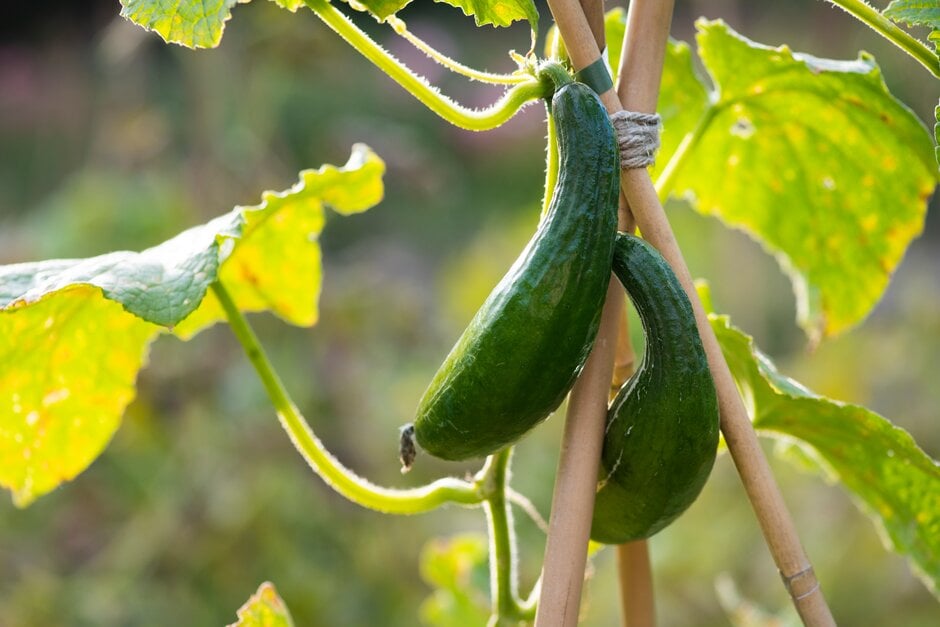Cucumis sativus 'Passandra'
cucumber 'Passandra'
'Passandra' is a perennial cucumber widely cultivated as an annual. Bright yellow flowers form medium thick and medium long green fruit which can become thin in the middle during the summer months. This variety is tolerant against mildews and mosaic virus

Buy this plant
Size
Ultimate height
0.1–0.5 metresTime to ultimate height
1 yearUltimate spread
0.1–0.5 metresGrowing conditions
Moisture
Moist but well–drainedpH
Acid, Alkaline, NeutralColour & scent
| Stem | Flower | Foliage | Fruit | |
| Spring | Green | |||
|---|---|---|---|---|
| Summer | Yellow | Green | Green | |
| Autumn | Green | |||
| Winter |
Position
- Full sun
Aspect
West–facing or South–facing
Exposure
Sheltered Hardiness
H1CBotanical details
- Family
- Cucurbitaceae
- Native to GB / Ireland
- No
- Foliage
- Deciduous
- Habit
- Trailing, Climbing
- Potentially harmful
- Pets: Bitter fruit can be TOXIC if eaten - see the HTA guide to potentially harmful plants for further information and useful contact numbers
- Genus
Cucumis is a genus of twining plants with tendrils which includes cucumber, melons and gerkins. Around 30 species are native to Africa and 25 to India, Southeast Asia and Australia.
- Name status
Accepted
How to grow
Cultivation
Start from seed or buy as small plants and grow in a heated greenhouse, or on a windowsill. Can be moved to an unheated greenhouse, or outdoors, once all risk of frost has passed. Water regularly, feed plants in containers every 10-14 days, and provide support.
Propagation
Propagate by seed. See sowing vegetable seeds
Suggested planting locations and garden types
- City and courtyard gardens
- Patio and container plants
- Cottage and informal garden
Pruning
Under glass, remove the tip of the plant once it reaches the top of the support. Shorten sideshoots to two leaves beyond any developing fruit, or to 60cm if they have no fruit. If left to trail outdoors shorten the main shoot, and sideshoots with no fruit, after seven leaves
Pests
May be susceptible to glasshouse whitefly and glasshouse red spider mite. Outdoors may be troubled by slugs and snails
Diseases
May be susceptible to cucumber mosaic virus and powdery mildews
Get involved
The RHS is the UK’s gardening charity, helping people and plants to grow - nurturing a healthier, happier world, one person and one plant at a time.